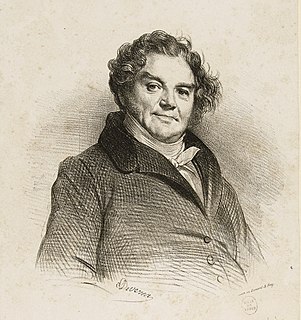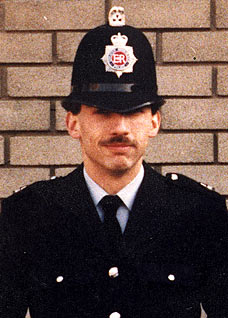Related Research Articles

Stephen Lawrence was a black British teenager from Plumstead, southeast London, who was murdered in a racially motivated attack while waiting for a bus in Well Hall Road, Eltham on the evening of 22 April 1993. The case became a cause célèbre: its fallout included cultural changes of attitudes on racism and the police, and to the law and police practice. It also led to the partial revocation of the rule against double jeopardy. Two of the perpetrators were convicted of murder on 21 June 2012.

To go "undercover" is to avoid detection by the object of one's observation, and especially to disguise one's own identity for the purposes of gaining the trust of an individual or organization in order to learn or confirm confidential information, or to gain the trust of targeted individuals to gather information or evidence. Undercover operations are traditionally employed by law enforcement agencies and private investigators; those in such roles are commonly referred to as undercover agents.

Panorama is a British current affairs documentary programme aired on BBC Television. First broadcast in 1953, it is the world's longest-running news television programme. Panorama has been presented by many well known BBC presenters, including Richard Dimbleby, Robin Day, David Dimbleby and Jeremy Vine. As of 2018, it still retains a peak time transmission slot on BBC One, but without a regular presenter. The programme also airs worldwide through BBC World News in many countries.
Akinwale Oluwafolajimi Oluwatope Arobieke is a British convicted criminal. Known locally in North West England as Purple Aki, he is a 6 ft 5 in (1.96 m) tall bodybuilder who weighs 22 st.
During the period known as the Troubles in Northern Ireland (1969–1998), the British Army and Royal Ulster Constabulary (RUC) were accused by Republicans of operating a "shoot-to-kill" policy, under which suspected terrorists were alleged to have been deliberately killed without any attempt to arrest them. Such a policy was alleged to have been directed almost exclusively at suspected or actual members of Irish republican paramilitary groups. The Special Air Service (SAS) is the most high-profile of the agencies that were accused of employing this policy, as well as other British Army regiments, and the RUC.

The Broadwater Farm riot occurred on the Broadwater council estate in Tottenham, North London, on 6 October 1985.

Greater Manchester Police (GMP) is the territorial police force responsible for law enforcement within the metropolitan county of Greater Manchester in North West England.
Bruche Police Training Centre, Warrington, Cheshire was a training complex for probationary police officers in the United Kingdom. The site in a suburb of Warrington was operated by CENTREX, the 'Central Police Training and Development Authority'. It opened in January 1946 and closed in May 2006.

The Winnipeg Police Service is the police force of the city of Winnipeg, Manitoba, Canada.
Covert policing in the United Kingdom are the practices of the British police that are hidden to the public, usually employed in order that an officer can gather intelligence and approach an offender without prompting escape.
The Movement for Justice was set up in 1995 by people around the Kingsway College Student Union in the London Borough of Camden to tackle racism in institutional and established forms. The group confronted organised fascism as well as death in custody and wider racism to black people as well as travellers, refugees and asylum seekers. It is also the sister group to the American organization The Coalition to Defend Affirmative Action, Integration & Immigrant Rights, and Fight for Equality By Any Means Necessary (BAMN).
Inspector Ray Powell is a senior British Police Officer who held the position of President of the National Black Police Association from September 2003 to November 2005.
Mark Kennedy, undercover name Mark Stone, is a former London Metropolitan Police officer who, whilst attached to the police service's National Public Order Intelligence Unit, (NPOIU) infiltrated many protest groups between 2003 and 2010 before he was unmasked by political activists as an undercover policeman on 21 October 2010 and his identity was confirmed by the media three days later.

Christopher Alder was a trainee computer programmer and former British Army paratrooper who had served in the Falklands War and was commended for his service with the Army in Northern Ireland. He died while in police custody at Queen's Gardens Police Station, Kingston upon Hull, in April 1998. The case became a cause célèbre for civil rights campaigners in the United Kingdom. He had earlier been the victim of an assault outside a nightclub and was taken to Hull Royal Infirmary where, possibly as a result of his head injury, staff said his behaviour was "extremely troublesome." He was escorted from the hospital by two police officers who arrested him to prevent a breach of the peace.

DC Stephen Robin Oake, was a police officer serving as an anti-terrorism detective with Greater Manchester Police in the United Kingdom who was murdered while attempting to arrest a suspected terrorist in Manchester on 14 January 2003.
The Special Demonstration Squad (SDS) was an undercover unit of Greater London's Metropolitan Police Service, set up in 1968 with the approval of the Wilson government, to infiltrate British protest groups. It was part of the Special Branch, and worked closely with the Crown Prosecution Service (CPS). It operated from 1968 to 2008.
Around the end of 2010 and during 2011, it was disclosed in UK media that a number of undercover police officers had, as part of their 'false persona', entered into intimate relationships with members of targeted groups and in some cases proposed marriage or fathered children with protesters who were unaware their partner was a police officer in a role as part of their official duties. Various legal actions followed, including eight women who took action against the Metropolitan Police and the Association of Chief Police Officers (ACPO), stating they were deceived into long-term intimate relationships by five officers, including Mark Kennedy, the first officer to be identified as such, who was publicly identified on 21 October 2010 as infiltrating social and environmental justice campaigns, and Mark Kennedy himself who claimed in turn that he had been incompetently handled by his superiors and denied psychological counselling. According to The Guardian, Kennedy sued the police for ruining his life and failing to "protect" him from falling in love with one of the environmental activists whose movement he infiltrated.

Undercover is a six-part BBC television drama series co-produced with BBC America which was first broadcast beginning 3 April 2016. The series premiered in the United States as a six-hour miniseries on 16 and 17 November 2016 on BBC America; it began its run on the CBC in Canada in August and on Canal + in France since January 2017.
Christopher Kapessa was a Welsh boy who died at the age of 13 in the River Cynon on 1 July 2019. According to Kapessa's family and their representatives, the police investigation into the incident lasted around two days, the event declared "an accident" within 24 hours. A fortnight later, the anti-racist charity The Monitoring Group submitted a complaint to South Wales Police on behalf of Kapessa's mother Alina Joseph, alleging racial discrimination in the police response. In February 2020, the Crown Prosecution Service (CPS) reported that there was "sufficient evidence" but not "public interest" for a manslaughter case against a child suspected to have pushed Kapessa into the river.
The Monitoring Group (TMG) is an anti-racist charity in the UK. It was established in Southall in the early 1980s, and originally known as the Southall Monitoring Group. Its director is Suresh Grover.
References
- ↑ "The Secret Policeman". 2008-10-03. Retrieved 2020-04-12.
- 1 2 3 4 Heslop, Richard (2007-06-22). "Them and us: emerging findings from a case study of police recruits trained in partnership with a local university". www.leeds.ac.uk. Retrieved 2020-04-05.
- ↑ "THE STEPHEN LAWRENCE INQUIRY REPORT OF AN INQUIRY BY SIR WILLIAM MACPHERSON OF CLUNY" (PDF). Gov.UK. February 1999. p. 49. Retrieved 14 April 2020.
- 1 2 3 4 5 "My life as a secret policeman". BBC News. 2003-10-21. Retrieved 2020-04-05.
- 1 2 3 4 5 6 Correspondent, John Steele, Crime (2003-10-22). "Police recruits resign after TV exposes racists". Telegraph. ISSN 0307-1235 . Retrieved 2020-04-05.
- 1 2 3 4 "The Secret Policeman". BBC News. 2008-10-03. Retrieved 2020-04-05.
- ↑ "Police hit back at BBC over racism film". The Guardian. 2003-10-22. Retrieved 2020-04-05.
- ↑ "No prosecution for 'Secret Policeman'". Daily Post. 2003-11-05. Retrieved 2020-04-05.